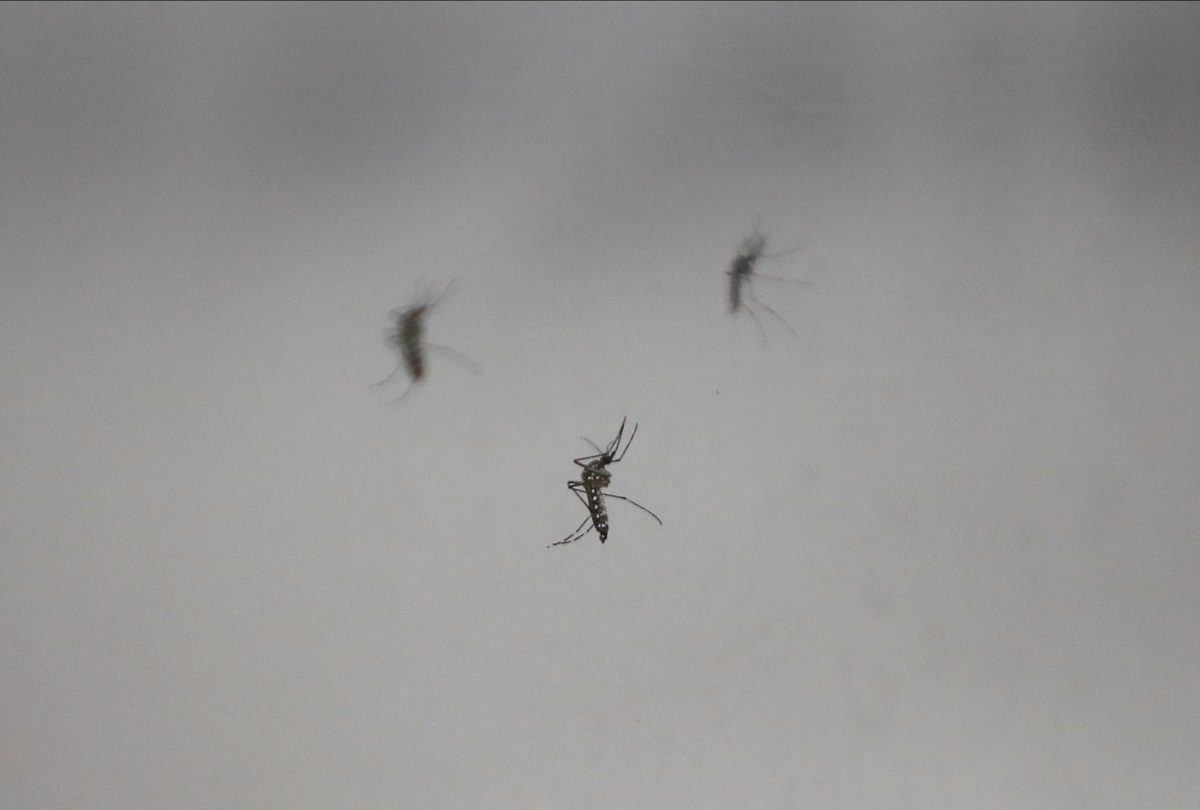BRASILIA/MONTEVIDEO, (Reuters) – South America is seeing a surge in cases of the mosquito-borne disease dengue during the southern hemisphere summer, prompting Brazil to roll out a novel vaccine campaign, while in Argentina many stores have run out of bug spray.
With 2023 already having set a record for dengue cases in the region, Argentina has seen a sharp spike in the disease that’s endemic in much of Latin America. While often asymptomatic, dengue can be fatal.
Brazil this month has started spraying insecticide from trucks as the disease rips through previously unaffected regions, while hospitals in Paraguay have set up night clinics to attend to the sick due to elevated dengue activity.
Argentina has recorded over 12,500 cases of the disease in the last month, according to the latest official health bulletin, a big jump versus the same period a year ago, leading to health warnings and shortages of insect repellent.
“Repellent sold out everywhere, there were literal clouds of mosquitoes,” Buenos Aires resident Laura Ledesma told Reuters from Argentina’s capital, before adding that there were signs the situation had begun to improve.
“Things seem to be more manageable than earlier in January.”
In Brazil, where dengue is often called breakbone fever for the severe joint pain it causes, cases have more than doubled in the first week of January compared to the same period last year. Brazil will become the first country in the world to offer a dengue vaccine through the public health system, which officials said could begin within days.
South America and beyond is seeing the spread of dengue exacerbated as rising temperatures and the El Nino weather pattern in the Pacific contribute to prolonged dengue seasons and the geographical spread of infections, scientists say.
“Climate change has expanded the range for mosquitoes to breed, both in the Americas and globally,” Thais dos Santos, who specializes in arboviral, or insect-borne, diseases at the Pan American Health Organization (PAHO), told Reuters.
PAHO data shows that last year topped a previous 2019 record for dengue cases in the Americas, with some 4.2 million cases and 2,050 deaths. Much of that was in the so-called “Southern Cone” of South America.
Spread by mosquitoes, dengue outbreaks typically occur three to five years after a previous epidemic. The December-February southern summer months bring ideal hot and humid conditions for mosquitoes to breed, spreading the potentially deadly disease that can cause high fever, muscle pain and internal bleeding.
Paraguay and Uruguay issued epidemiological alerts for the illness in December following intense rains, as standing water also provides ideal mosquito breeding conditions.
Residents in Brasilia this week were queuing outside temporary medical facilities set up to test for dengue as case loads in the Brazilian capital have leapt by as much as 646% in the first 20 days of January versus last year.
Trucks spraying insecticide in the worst-hit areas have been deployed in so-called ‘fogging’ operations to slow transmission.
Nelson Diego, 37, who tested positive for dengue in the Brasilia neighborhood of Recanto das Emas where fumigation is underway, said he was suffering muscle pain and fatigue from the disease, though some days were tougher than others.
“Today is one of the better days because I can still open my eyes,” he said. “I had a lot of pain in my joints and couldn’t walk before.”

